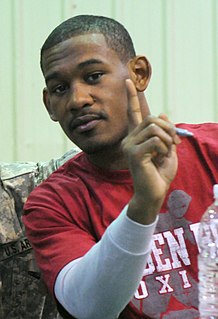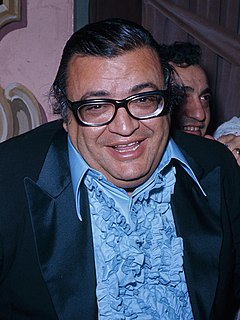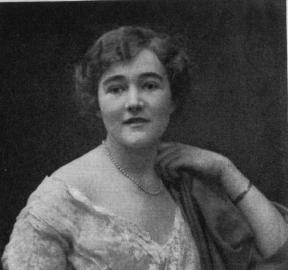A Quote by Leo Tolstoy
At school he had done things which had formerly seemed to him very horrid and made him feel disgusted with himself when he did them; but when later on he saw that such actions were done by people of good position and that they did not regard them as wrong, he was able not exactly to regard them as right, but to forget about them entirely or not be at all troubled at remembering them.
Related Quotes
I couldn’t forgive him or like him, but I saw that what he had done was, to him, entirely justified. It was all very careless and confused. They were careless people, Tom and Daisy—they smashed up things and creatures and then retreated back into their money or their vast carelessness, or whatever it was that kept them together, and let other people clean up the mess they had made.
I have a very close friend who is a brilliant clown, and I always wanted to do a show with him. So I did one year at La MaMa Theatre. I had not done stilts before that show, and I had about two weeks to learn how to do that, and they were just made with off-off Broadway money. The ones that I had in Rogue One were made by [Industrial Light & Magic]. So they were really easy. They were made with actual prosthetic feet on the bottom. They were athletic, in a way. I could run in them. There was a bounce to them that I could use.
I think that there are excesses that exist in all societies. I won't say it's normal to have them, but it's natural to have them. I'm watching very closely ... what Snowden has done. I don't know him personally. I wanted to talk to him, but all of the security people didn't allow me to. But I think that he took the wrong approach to a very right thing which he was doing. Just the implementation was wrong. There was a clear platform to what he was doing, although of course that there were some mistakes made.
Stevenson had noble ideas--as did the young Franklin for that matter. But Stevenson felt that the way to implement them was to present himself as a thoughtful idealist and wait for the world to flock to him. He considered it below him, or wrong, to scramble out among the people and ask them what they wanted. Roosevelt grappled voters to him. Stevenson shied off from them. Some thought him too pure to desire power, though he showed ambition when it mattered.
I've always vowed that if I had a child, I would treat him right. My father was a perfect model for me because everything that he did wrong, or everything that he did I would just do the opposite. Which would be the right thing to do. So that is being in your son's life 100 percent, give them love, give them affection, give them discipline.
We do not always remember the things that do no credit to us. We justify them, cover them in bright lies or with the thick dust of forgetfulness. All of the things that Shadow had done in his life of which he was not proud, all the things he wished he had done otherwise or left undone, came at him then in a swirling storm of guilt and regret and shame, and he had nowhere to hide from them. He was as naked and as open as a corpse on a table, and dark Anubis the jackal god was his prosector and his prosecutor and his persecutor.
I suppose we'll make money off our album and our singles and stuff, but, like, they were made as we wanted them, exactly with what we had to say, and done exactly how we wanted them, right? And, like, we didn't put them out to make money. We put them out because we wanted to do them, do you know what I mean?
Authors, she soon decided, were probably best met within the pages of their novels, and were as much creatures of the reader's imagination as the characters in their books. Nor did they seem to think one had done them a kindness by reading their writings. Rather they had done one the kindness by writing them.
Jon Krakauer had documented it very accurately and very well but this kid made a real impression on people, and likewise they on him. To talk to them was very moving in many cases because they talk about him like they saw him yesterday. In most cases they knew this kid for a couple of weeks in their whole life and he just lasted with them.






































